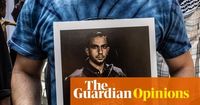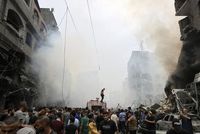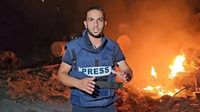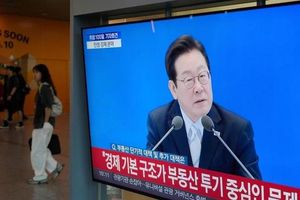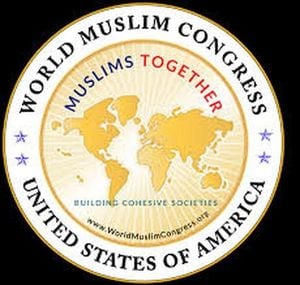The killing of six Palestinian journalists in an Israeli air strike near al-Shifa Hospital in Gaza on August 10, 2025, has reignited fierce debate over press freedom, accountability, and the perils faced by those reporting from conflict zones. The strike, which claimed the lives of Al Jazeera reporter Anas al-Sharif, three of his colleagues, and two freelancers, was described by the Committee to Protect Journalists (CPJ) as "murder"—a term reserved for what the organization calls the "deliberate killing of journalists for their work," according to The Conversation.
Israeli authorities justified the strike by alleging that al-Sharif, 28, was not only reporting but also leading a Hamas cell and "advancing rocket attacks against Israeli civilians and troops." Military spokesperson Avichay Adraee shared undated photos on X (formerly Twitter) of al-Sharif with Yahya Sinwar, the Hamas leader behind the October 2023 attack on Israel, and cited circumstantial evidence such as "personnel rosters, lists of terrorist training courses, phone directories and salary documents." However, as The Conversation notes, such evidence is far from conclusive—journalists often maintain contacts with sources across the spectrum, including those considered unsavory or even dangerous.
Importantly, Israel made no claims about the other five journalists killed in the strike. Three were also affiliated with Al Jazeera, while two worked as freelancers. This lack of explanation has only fueled suspicions that the attack was part of a broader campaign against media workers in Gaza.
The deadly toll on journalists in Gaza is staggering. Since the outbreak of war on October 7, 2023, CPJ has recorded the deaths of 190 media workers, making it the deadliest conflict for journalists since the organization began keeping records. The Columbia Journalism Review (CJR) reports that 184 Palestinian journalists have been killed by Israeli forces, with local press freedom groups estimating the number exceeds 200. CPJ has identified at least 24—and possibly as many as 46, according to Reporters Without Borders (RSF)—who appear to have been deliberately targeted because of their work. In many cases, journalists were killed in marked vehicles or while wearing body armor labeled "PRESS."
These losses are not just numbers. The recent strike near al-Shifa Hospital included not only al-Sharif but also correspondent Mohammed Qreiqeh, camera operators Ibrahim Zaher and Mohammed Noufal, and freelancers Moamen Aliwa and Mohammad al-Khaldi. For many in the journalistic community, their deaths seemed like an attempt to silence the last independent voices broadcasting from Gaza as Israeli forces prepared to take over Gaza City, as CJR describes.
The dangers faced by Palestinian journalists go beyond physical violence. CJR details how they have been subjected to systematic harassment, blacklisting campaigns, and attempts to discredit their work, often instigated by Israeli intelligence and pro-Israel advocacy groups. Meanwhile, foreign journalists have been barred from entering Gaza for nearly two years, except for tightly controlled military embeds. This policy, enforced by both Israel and Egypt, has left Palestinian journalists isolated—exhausted, displaced, and carrying the burden of reporting under siege conditions, with little hope for relief from international colleagues.
Calls for accountability and access have grown louder. More than 1,000 international journalists have signed a petition demanding entry into Gaza, but Israel maintains that it cannot guarantee their safety in such an active war zone. As The Conversation points out, this justification rings hollow for many reporters who are well aware of the risks and have crossed conflict lines before. "All those who have signed the petition know well the risks of reporting from hostile environments," wrote Peter Greste, a signatory and professor of journalism. "None are naive to the dangers and all are committed to the principles behind media freedom."
The muted response from many governments and journalism organizations has led to growing distrust within the profession. Instead of collective action, most responses have focused on unverified claims about journalists’ alleged combatant status rather than the well-documented evidence of their work. This, according to CJR, has marked a breaking point for many journalists’ faith in legacy news institutions. "We’ve passed the point of verbal condemnation," said Youmna ElSayed, Al Jazeera English’s Gaza correspondent, now based in Cairo. She called for more concrete action, including international pressure and sanctions against Israeli officials responsible for attacks on the press.
Ideas for defending press freedom in Gaza have ranged from coordinated strikes by Western journalists, to media blackouts, to boycotting Israeli government statements until journalists are allowed in. Some, like Hind Hassan, have proposed a global media pause—an hour in which regular programming is replaced by a unified message highlighting the deaths of journalists and the denial of access to Gaza. Others, such as Kenneth Roth, former executive director of Human Rights Watch, have urged the International Criminal Court to prosecute cases where journalists were specifically targeted, arguing that "killing journalists has a compounding effect by closing the eyes and ears of the world and enabling more war crimes."
There is also a call to preserve the work of Palestinian journalists, as Shrouq Aila, who leads Ain Media after her husband’s death, has noted. She warns that Israeli efforts to delete Palestinian narratives extend to social media platforms, with content frequently banned or removed. Aila advocates for a dedicated platform to archive and protect Gaza’s journalism from erasure.
Critics argue that Western media must do more to center Palestinian voices and hold Israeli authorities accountable. This includes refusing to platform Israeli officials until independent reporting is allowed, amplifying Palestinian reporting, and supporting journalists in Gaza both financially and through public advocacy. As Nader Ihmoud, founder of Palestine in America, suggested, even the symbolic act of pairing each Palestinian journalist with a Western counterpart could force greater accountability and protection.
Underlying all these calls is a demand for justice and the end of impunity. As Laila Al-Arian of Al Jazeera’s Fault Lines program points out, "not a single Israeli soldier had faced any accountability" for the killing of journalists in over two decades. For many, only international legal mechanisms—war crimes investigations, sanctions, and independent inquiries—offer hope for change. Frank Smyth, a veteran journalist and human rights investigator, believes that documenting and publicizing these atrocities is essential to strengthening international humanitarian law and ensuring that the rights of Palestinian journalists are treated with the same gravity as those of their Western counterparts.
The stakes are high—not just for the journalists of Gaza, but for press freedom everywhere. As Jonathan Dagher of RSF puts it, "defending the journalists in Gaza is a service to democracies everywhere." The world is watching, and the outcome of this struggle will shape the future of journalism in conflict zones for years to come.
